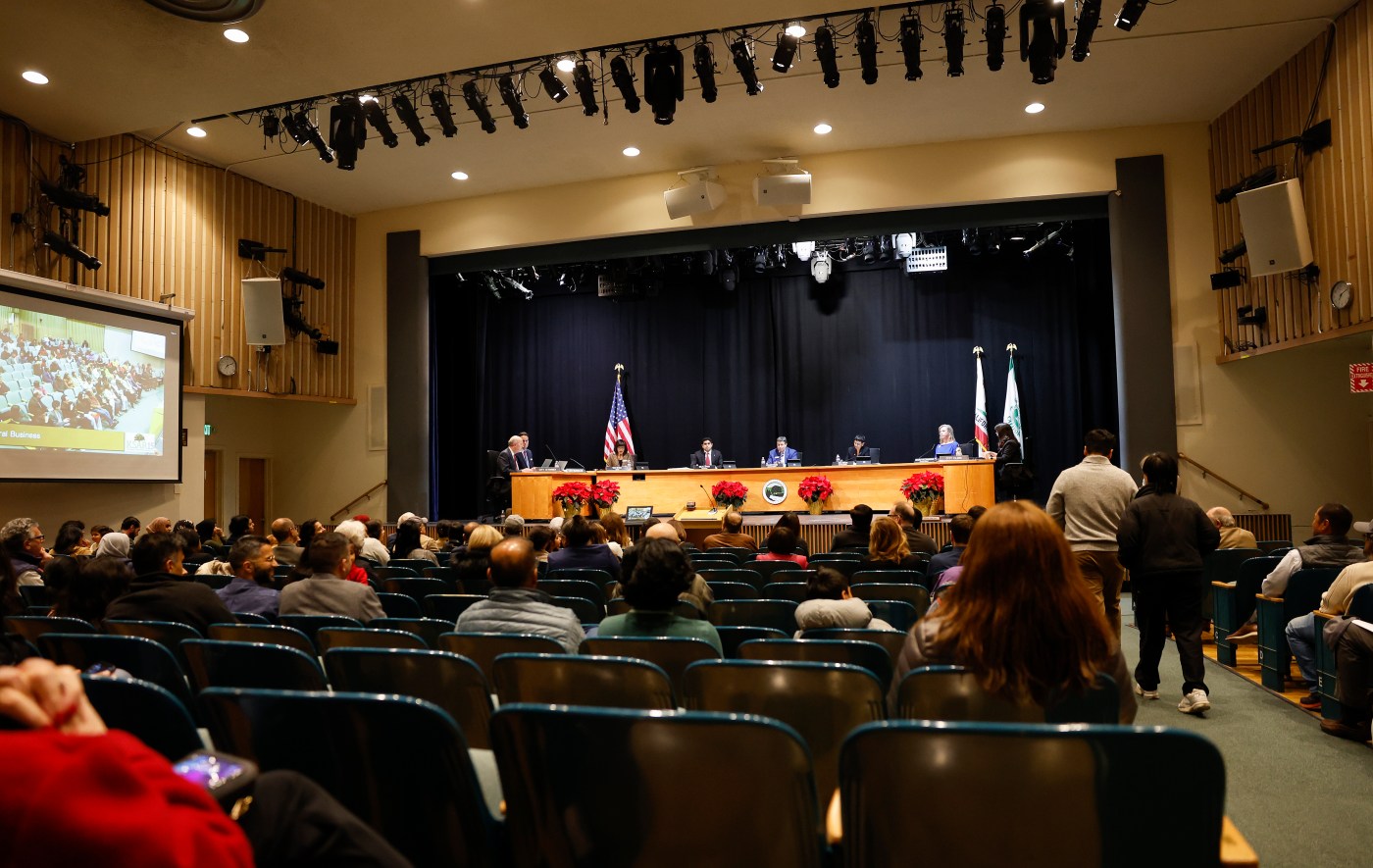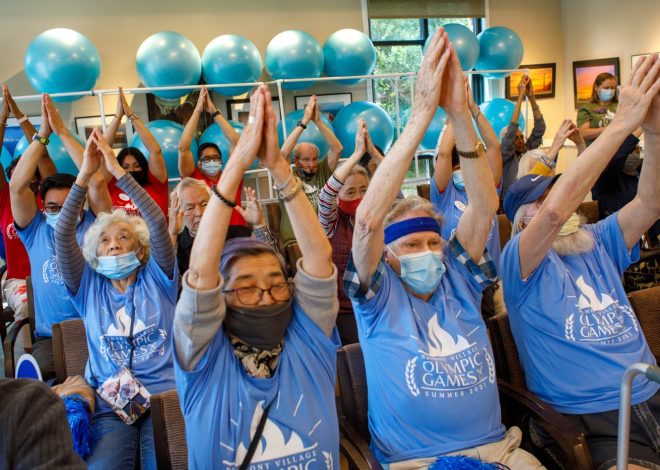
Year in Review: a roundup of Saratoga City Council actions
Topics like housing and plans to improve economic vitality dominated the discussion at Saratoga City Council meetings in 2024. Here’s a roundup of the year’s biggest decisions, actions and conversations..
City manager search
The council kicked off 2024 with a series of meetings to identify a firm to conduct the search for longtime city manager James Lindsay’s replacement. Lindsay had served in his position since 2014 and moved to the Sierra Foothills to be closer to family.
Council eventually signed a $29,200 contract with executive search firm Bob Murray & Associates. The firm and the council selected Matt Morley, who had served in similar roles in Los Gatos and Cupertino. Morley took over as Saratoga’s city manager on June 17.
New city leadership
Tina Walia and Kookie Fitzsimmons’ terms on the Saratoga City Council were set to end in 2024. But by the deadline in August, the two incumbents were the only two candidates to file the appropriate paperwork to run for re-election, which hasn’t happened in the city since 2012.
As such, the council voted 3-0 to cancel the November election and appoint Walia and Fitzsimmons to their seats, saving the city about $100,000 in election costs. The decision threw a wrench in the mayoral selection process, since usually the top two vote-getters are next in the rotation for the top spot.
At their Dec. 18, council voted to appoint Vice Mayor Belal Aftab as mayor for 2025, and Aftab in turn nominated council member Chuck Page to serve as his vice mayor, positioning him to become mayor in 2026.
Economic vitality
The city council had been engaged in conversations about improving economic vitality in Saratoga through 2024, but those conversations kicked off formally with the decision in May to put together an ad hoc committee spearheaded by Page and Aftab to tackle the issue.
The group met throughout the summer with community members, local business owners and other stakeholders, and came to the council with a series of recommendations on how to help revive the city’s commercial scene, including a pilot outdoor dining program.
Aftab and Page formally presented their recommendations to the council in early November. Some of their recommendations also included plans to put together business grants and support marketing and promotion for the city, which council members unanimously supported.
But they were split on approving the pilot outdoor dining program, and some residents criticized former mayor Yan Zhao for her opposition to the program, arguing that she was incorrectly operating under the assumption that the Saratoga Village was already “pretty vibrant.”
Instead of dissolving the committee as planned, the council on Nov. 25 voted to temporarily revive the committee, charging it with coming up with a more detailed pilot outdoor dining plan to present to the council again.
House Family Vineyards
The House Family Vineyards have been generating controversy in Saratoga for years as its owners work on bringing its facilities into compliance with city code.
The council in 2022 voted to allow the vineyards to remain open in a limited capacity while the facilities were brought up to code, and granted House Family an extension in 2023. The council yet again approved an extension of those temporary permits in September 2024, reviving hillsides residents’ concerns that the winery’s operations would be a danger to the people who live in the high fire risk area.
Jim Cargill, the vineyards’ winemaker, said he didn’t want the temporary permits to be in place any longer than its opponents did. Cargill said he hopes for the entire code compliance effort to wrap up by April 2025.
Housing element
The city of Saratoga had been working since 2021 to put together its housing element, a roadmap for all housing to be built in the city through 2031. After a long road, council members put their final stamp of approval on the document in March.
But state housing officials were slow to give their final approval, saying in May that they found the housing element to be substantially compliant with state law but were withholding their final approval until the city clarified that it would allow for ““non-discretionary review” for housing developments that have 20% affordable units.
City staff put together a set of revisions that addressed the state’s request for clarification that the council approved in late June. The city has since begun the process of implementing the housing element.
Budget
Though the city council approved a balanced $30.6 million budget for the fiscal year 2024-25, the possibility of a budget deficit lies ahead. Officials warned of expenses beginning to outpace revenues in the 2026-27 fiscal year.
Staff were able to balance the 2024-25 budget using returns on the city’s investments and excess dollars from the Educational Revenue Augmentation Fund, property taxes typically reserved to help fund school districts. The forecasted deficit, staff said, can be attributed in part to the slowing of property tax growth following the pandemic.
Controversial developments
Though the Westgate Costco project is technically in West San Jose, Saratogans have been concerned about its impact because of its proximity to the latter city’s border. The Saratoga City Council in February unanimously voted to express concerns about the project’s draft environmental impact report, saying it didn’t adequately address noise, land use and transportation impacts. Aftab remained a vocal opponent of the project even after it received the green light from the city of San Jose in October, citing traffic impacts on Saratoga.
The controversy over the expansion of the Saratoga Retirement Community (SRC) – which would include 52 new housing units – dates back to when it was first proposed in 2018. SRC residents, who turned out in droves to meetings about the expansion, argued that the construction would take away from their quality of life and would ruin the campus’s rural feel.
But the council in June eventually greenlit the proposal in a 4-1 vote – with council member Tina Walia casting the only opposing vote – citing the long-term benefits of adding more housing in Saratoga.
Pickleball and pollution
Other notable city council decisions include the approval of funds to renovate a pickleball court.
The city put up pickleball courts in El Quito Park after increased demand for the sport during the pandemic, but nearby residents have said that the noise from the courts had affected their quality of life and even motivated some to consider moving. Residents complained that avid pickleball players were even jumping the fences surrounding the court to enter and play late into the night.
The city council in August approved directing $100,000 to adding soundproofing measures and a new lock system at the courts to reduce the noise and prevent people from playing in the courts after hours, but some are worried it may not be enough.
The city also heard an update on its climate action plan including its ongoing efforts to reduce carbon emissions, which had decreased by 29% since 1990. Though city staff warned of a plateau in emission reductions in recent years, they said that new local rules and regulations would crack down on such emissions and help keep the city on track.


